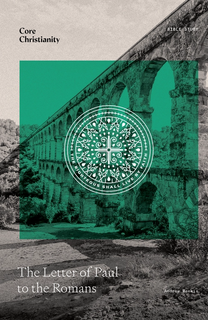Theological distinctions can radically change a person’s life. It did so for Martin Luther, the German monk who sparked the Protestant Reformation. He was freed from crippling guilt and anxiety over his moral failures by coming to understand the difference between the law and the gospel. This isn’t an abstract theological distinction—the skill of distinguishing between law and gospel has tangible, daily, real implications. The ability to make this distinction can mean the difference between a spiritual life that’s full of despair, angst, and sorrow, or one that’s marked by joy, peace, and hope.
To understand why this is so, we should first define law and gospel, and then we can understand why understanding the distinction matters so much.
The Law
The law of God refers to the commands he gives humanity. Wherever we find imperatives in the Bible, we discover God’s law. His law reveals his design for men and women, how we are to relate to him, and to one another. Sometimes God explains what we should do, and sometimes he tells us what we should not do. Both exhortations and prohibitions are the law of God. These reveal God’s standard for us. They tell us how we ought to think and act.
More than revealing God’s will to us, the law shows us the many ways we don’t meet God’s standard. As the apostle Paul wrote, “All have sinned and fall short of the glory of God” (Rom. 3:23). The law is like a teacher with one straightforward, blunt, and withering lesson: “You have failed to meet God’s requirements for humanity.” The law shows us our shortcomings and condemns us for them. Paul writes, “by works of the law no human being will be justified in his [God’s] sight, since through the law comes knowledge of sin” (Rom. 3:20).
As long as we live under God’s law and relate to him by trying to be perfect and never messing up, we’ll always have a sense of guilt and shame. It might be a nagging feeling, or like Luther it might be a cause of existential angst, but if we relate to God only through his law, we will be keenly aware of our insufficiency and inadequacy. We’ll feel distant from God, like we can never make our way to him. Praise be to God that he has provided another path into his loving presence: the gospel.
The Gospel
What the law couldn’t do—namely, offer forgiveness to the guilty and dignity to the ashamed—the gospel can. The word itself means “good news.” The good news is that though we can’t obey God’s law perfectly, he sent his beloved Son, Jesus, to create a pathway to restored fellowship with him. Jesus perfectly obeyed God’s law. Then, instead of being rewarded for his obedience, he was cursed for our disobedience on the cross. If we believe this, we’re forgiven and accepted by God. As Paul says, “Christ redeemed us from the curse of the law by becoming a curse for us” (Gal. 3:13).
The gospel tells us that if we trust in Jesus, his obedience and death become our own. His obedience is like a cloak that covers our guilt and shame. His death is in our place. God won’t judge us for our sin, because his judgment was already carried out on Jesus. Instead, he’ll look at us, see that cloak of Christ’s righteousness, and judge us based on Jesus’ obedience. When we relate to God through the gospel, we’ll feel near to him. This is because the only path to God is through Jesus and his righteousness. Our attempts to be righteous and holy will never be good enough. The good news is that even though we fail to keep God’s law, Jesus was “good enough” for us!
What Does the Law/Gospel Distinction Mean for Our Everyday Lives?
The law/gospel distinction shows us two radically different ways of existing by showing the two possible ways for humans to relate to their creator.
Existing under the law is exhausting. It offers no relief from guilt, no antidote to shame. If we sense God at all, it’s his displeasure that we’ll feel. The law offers no escape from our sin; it only highlights our failure for us. Life under the law is bleak and without hope. The better we understand this and the more we experience its reality, the sweeter the gospel will be to us.
The gospel message tells us we’re forgiven if we repent for our sins. It tells us we are loved and accepted by God, despite the dishonorable things we do and think. This is all on the basis of Christ’s work to redeem us. Gospel living is life not under law, but under grace. It’s a life of freedom and joy. It’s a life in which we love because God first loved us. It’s a life not of bitterness and grudges, but full of the freeing power of forgiveness and reconciliation. The more we meditate on the gospel, the more the Holy Spirit will shape us into grace-filled, loving, joyful, Christ-like people.






